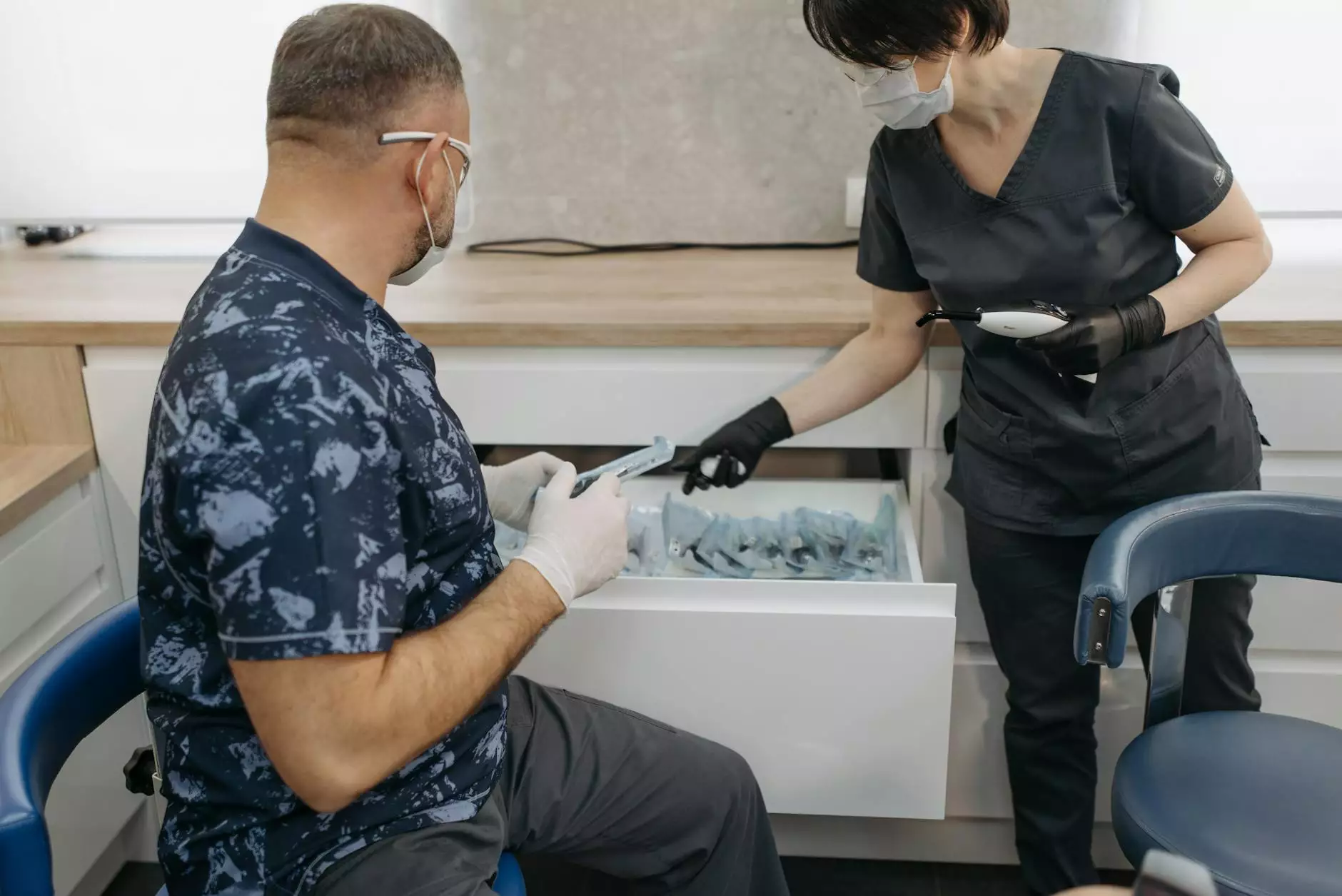Maximizing Educational Outcomes in Special Education through Accurate Fit Kit Test Assessments

In the rapidly evolving landscape of special education, the need for precise and personalized assessment tools is more critical than ever. Among the cutting-edge solutions transforming how educators and specialists identify student needs is the fit kit test. This innovative assessment approach offers unparalleled accuracy, efficiency, and insights, leading to better tailored educational strategies and improved student success. This comprehensive guide explores the significance of the fit kit test in educational services, especially within the realm of special education.
Understanding the Fit Kit Test: A Revolutionary Assessment Tool in Special Education
The fit kit test is designed as a sophisticated, user-friendly assessment mechanism that precisely evaluates a student's individual needs and capabilities. Unlike traditional assessment methods, which often rely on subjective observations or limited testing parameters, the fit kit test employs a comprehensive, data-driven approach. This ensures that educators and specialists can develop more effective, personalized learning plans that align with each student's unique profile.
The core philosophy behind the fit kit test is to provide a holistic understanding of a student's strengths, weaknesses, learning styles, and behavioral tendencies. This enables educators to design interventions that are not only targeted but also adaptable, fostering an environment where every student can thrive.
The Key Benefits of Implementing the Fit Kit Test in Special Education Programs
- Enhanced Accuracy and Precision: The fit kit test leverages advanced diagnostic tools and algorithms to deliver precise assessments, reducing misdiagnoses and ensuring appropriate support measures.
- Time Efficiency: Its streamlined process minimizes assessment time, allowing educators to focus more on intervention and support rather than prolonged testing periods.
- Personalized Learning Paths: Results from the fit kit test enable the creation of tailored educational strategies that directly address individual needs and learning styles.
- Data-Driven Decision Making: Objective, quantifiable data ensures that all intervention plans are rooted in solid evidence, facilitating better outcomes and resource allocation.
- Improved Student Engagement: When instruction matches a student’s unique needs, engagement and motivation significantly increase, leading to higher academic achievement.
- Facilitates Inclusion: Accurate assessments promote inclusive practices by identifying diverse learning needs early, ensuring that no student is left behind.
- Supports Professional Development: Teachers and specialists gain valuable insights into effective assessment and intervention strategies, enhancing their professional skills.
The Role of the Fit Kit Test in Modern Educational Services
Within the broad spectrum of educational services, the fit kit test plays a pivotal role by enabling educators to move beyond generic strategies toward highly individualized instruction. This test supports various facets of educational planning, including:
Diagnostic Evaluation and Student Profiling
The fit kit test provides a comprehensive profile that captures cognitive abilities, behavioral tendencies, sensory preferences, and communication styles. This multidimensional data allows for accurate classification and understanding of each student’s learning needs.
Customizing Intervention Strategies
Armed with detailed assessment results, educators can tailor intervention strategies that optimize engagement and retention. These personalized plans may include specialized therapies, classroom accommodations, assistive technologies, and differentiated instruction.
Monitoring Progress and Ensuring Adaptability
One of the most significant advantages of the fit kit test is its capacity for ongoing monitoring. Regular reassessment ensures that interventions remain effective and are adjusted as students develop or encounter new challenges.
Implementing the Fit Kit Test in Your Educational Institution
Successful integration of the fit kit test into your special education program requires systematic planning and staff training. Here are essential steps:
- Assess Your Needs: Identify the student populations and specific assessment goals that can benefit from the fit kit test.
- Choose a Reputable Provider: Partner with organizations like H2sOnlineTraining that offer reliable, evidence-based fit kit test solutions.
- Train Educators and Specialists: Provide comprehensive training to ensure accurate administration and interpretation of the test results.
- Integrate with Existing Programs: Seamlessly incorporate the assessment into current evaluation processes and data management systems.
- Communicate with Stakeholders: Keep parents, guardians, and students informed about the assessment purpose and how results will inform educational planning.
- Monitor and Evaluate: Continuously review assessment effectiveness and make necessary adjustments for improvement.
Case Studies: Success Stories of Fit Kit Test Deployment in Special Education
Several educational institutions have already experienced transformative results by adopting the fit kit test. Here are some illustrative examples:
Case Study 1: A Middle School Enhances Inclusion Strategies
By implementing the fit kit test, a middle school identified specific learning challenges faced by students with developmental disabilities. The detailed insights enabled the staff to create customized support plans, leading to a 30% increase in classroom engagement and a significant reduction in behavioral incidents.
Case Study 2: Accelerating Learning Outcomes in a Special Education Center
A specialized education center used the fit kit test to accurately determine sensory preferences among students with autism spectrum disorder (ASD). Tailoring sensory environments and instructional methods resulted in measurable improvements in academic performance and social interaction.
The Future of Special Education: How the Fit Kit Test Leads Innovation
The landscape of special education is continually changing with technological advancements. The fit kit test exemplifies this evolution by providing accessible, powerful assessment tools that uphold the principles of equity and individualized learning.
Looking ahead, integration with artificial intelligence, machine learning, and data analytics promises to enhance the accuracy and usability of fit kit test solutions even further. These innovations will empower educators to proactively identify needs, prevent challenges before they arise, and promote a truly inclusive educational environment.
Why Choose H2sOnlineTraining for Your Fit Kit Test Needs
At H2sOnlineTraining, we specialize in delivering state-of-the-art assessments and educational resources tailored for special education. Our commitment to quality, accuracy, and professional development makes us the ideal partner for integrating the fit kit test into your programs.
Our Offerings Include:
- Comprehensive training modules on assessment administration and interpretation
- Access to the latest fit kit test tools and software
- Ongoing support and consultation services
- Customized solutions aligned to your institution’s goals
Conclusion: Embracing the Power of the Fit Kit Test to Transform Special Education
As the demand for more effective, personalized educational strategies grows, the fit kit test stands out as a game-changing assessment tool. Its capacity to deliver precise, actionable insights ensures that educators can craft interventions tailored to each student's needs, ultimately fostering an inclusive, supportive learning environment.
By partnering with trusted providers like H2sOnlineTraining, your institution can stay at the forefront of educational innovation and make a profound impact on the lives of your students. Embrace the future of special education with confidence and clarity — harness the power of the fit kit test.









